The definition of online reputation management can be explained as the ongoing task that serves to create, cultivate and maintain your business’ brand.
It is all about perception and managing that perception amongst consumers online.
Online reputation management includes:
In other words, reputation management gives you the insights needed to improve your online brand identity and grow your business.
Does this seem like an overwhelming task? Don’t worry!
In this guide, we’ll show how to manage your online reputation step-by-step, including the best platforms and tools to use for a successful business with a sterling online reputation!
Let’s get into it:
This is a quick comparison of the online reputation management tools we have reviewed in this guide.
Keep scrolling down for more details on each platform and service!
Best Online Reputation Platforms & Services | Pricing | P2P Rating & Website |
Google Alerts |
| |
Social Mention |
| |
SentiOne |
| |
Reputology |
| |
Meltwater |
| |
Hootsuite |
|
Managing your business’s online presence is more than just managing the website, blog, and social media platforms.
When you Google your own business, you will be surprised to find business listings, reviews, and photos appearing out of nowhere.
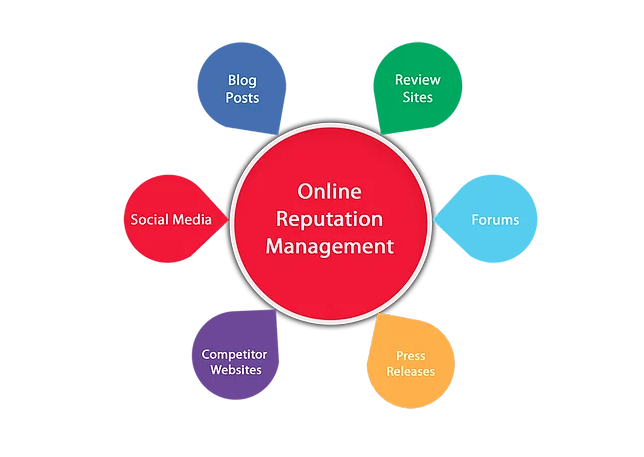
The potential damage these ‘other’ information sources can cause is quite alarming, and the reputation of your business is at stake. It seems like you have no control over what is being said.
Too many businesses don’t seem to be bothered about this. But, statistics show that what other people are saying about your business is increasingly becoming more important. Especially in the current digital age.
Studies show that 90% of customers read online reviews before they visit your business. And among consumers that read reviews, 97% read the businesses’ responses.”
It’s clear that what online reviews say about your business and how you respond to those reviews, is of greatest importance. It can result in the success or failure of your business.
Let’s look at the most important reasons why you have to create an online reputation management strategy. And why investing in online reputation management software and services is non-negotiable.
If you’re serious about growing your business, read on!
In short, the fact that your mom says you’re cool, is simply not enough!
Let’s jump into an explanation of how these play out:
Keeping track of your customer’s online comments, reviews and conversations can be challenging. And responding to each individual piece of feedback can be tiresome. Especially if you need to manage negative feedback and criticisms.

Your online presence is everywhere! So, without an online reputation management strategy, you can easily miss opportunities to defend, and build, your brand.
84% of people trust an online review as much as an in-person review or word-of-mouth recommendation.
In addition, businesses that respond swiftly and professionally to both positive and negative reviews online seem to minimise the potential of negative feedback spiralling.
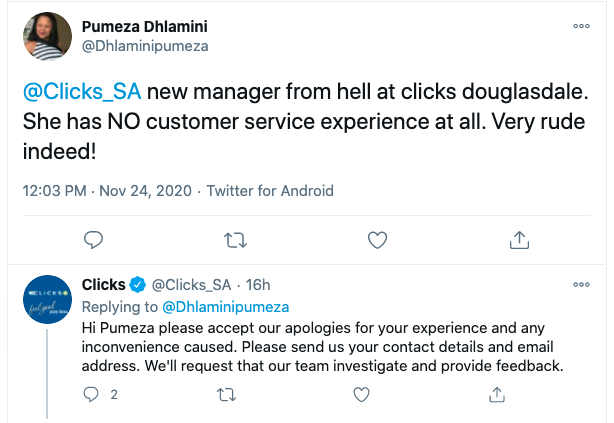
Responding to online reviews is crucial. And, it should form part of your online reputation management strategy.
It only takes one negative comment to destroy your brand’s identity and sow thoughts of doubt in consumers.
With the rise of social media platforms like Instagram and TikTok, we’ve also seen the rise of consumer-generated content. Customers tend to highly value the reviews from popular micro and macro influencers. And what they say about your business or brand can really impact your brand reputation.

It is crucial to manage all feedback, reviews and comments on your business in order to maintain a positive brand identity. Especially on outside platforms like blogs, review sites, social media and press releases.
In order to maintain a positive brand identity in the eyes of your consumer, you need to know who your consumers are and who they listen to.
However, if you do get negative feedback, follow these tips from Neil Patel:
Online reviews are factored into organic local search rankings. And consequently those businesses who actively manage online reviews and stay highly engaged with customers, can position themselves better in search engine rankings.
It’s simple, the more people talk about your business, the higher your ranking will be on search engines. Your job is to make sure that when people find your business, they find positive reviews.
Higher search rankings and a more reliable brand image effectively results in higher revenues. According to a study conducted by the Harvard Business School, it showed that businesses that had higher ranks enjoyed better revenues by around 5-9%.
Now, who is not in the business of making money? All businesses aim to generate income and increase their revenues. Consequently, managing and building your online reputation can have a direct impact on your numbers at the end of each financial year.
The task of managing your online reputation is no longer a nice-to-have. Subsequently, with the rise of social media usage, it is becoming an essential part of running any business.
Your first step is to take a look at what people are saying about your business online. And, there are numerous ways for you to find the information you need.
Therefore, finding the right online reputation management tool is essential. There are many tools that can help you track, analyse and report.
From free options like Google Alerts to more in-depth tools like Meltwater. More on the various tools available a little later.

The first thing people always do when looking for information on your business, is to Google it. And unfortunately, when it comes to online reviews, consumers tend to put more effort into voicing their negative experiences.
To improve the reputation of your business, you need a solid strategy.
From managing and responding to negative feedback to actively asking for feedback after a customer has engaged with your products or services. Therefore, this shouldn’t be an afterthought or the job of an intern.
Businesses should invest in resources to actively help them drive their business forward.
Your online reputation will always be compared to your competitors’. Likewise, taking and learning from their successes and mistakes can really help you to fine-tune your own online reputation management strategy.
Look at their websites, social media profiles, paid ad campaigns, PR coverage and marketing newsletters. Which influencers are they working with?
Ask these questions and pay close attention to their strategies. Consequently, this will help you to position your business in a positive, and competitive light.
This might seem obvious to some, or like Greek to others. But, people are talking about your business.
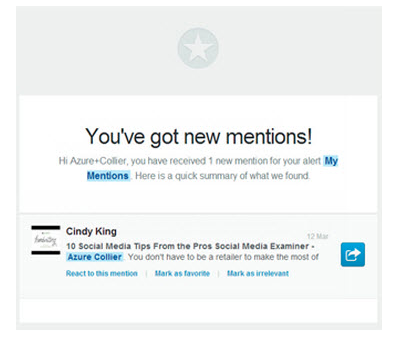
For example, take a close look at the use of brand-owned hashtags and consumer-generated hashtags used amongst your consumers.
You need to know the various platforms and their functions in order to keep a close eye on your business’ reputation.
Get interested! And, if you are not tech-savvy and interested, appoint someone to run this part of your business for you.
Social listening can also help you to improve your product or service development. Read more about how Uber obtained a 100% increase in conversations around their App.
If you are serious about managing you business’ online reputation, then finding the right software tool is probably the number one action to take.
The various tools offer different features; some are better suited to specific industries.
Let’s dive into the various tools and services you need to manage your online reputation successfully.
Finding the best online reputation management software is key to a running a successful business.
Reputation management software is designed to:
That’s a mouthful, so let’s look at the various options so you can find the ideal fit for your business:
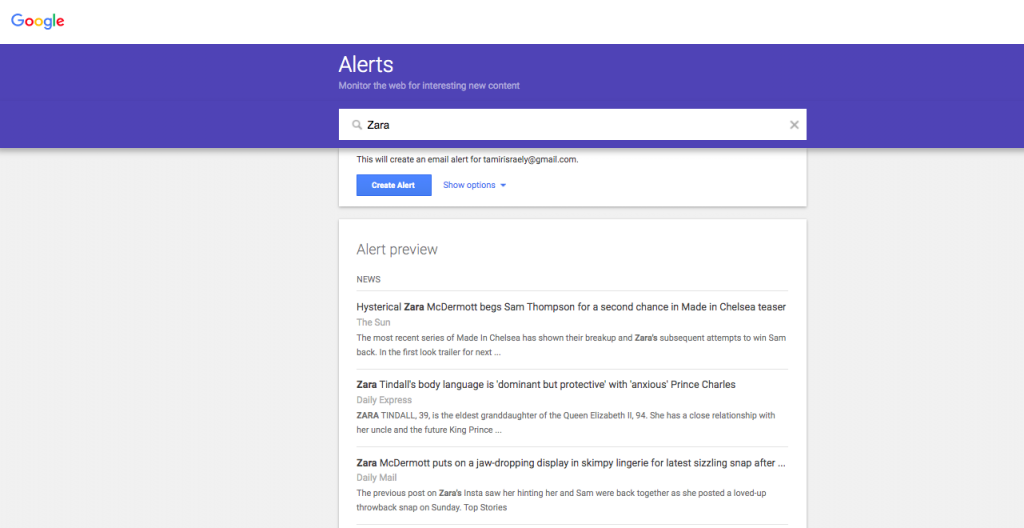
Google has several valuable free tools for businesses, and Google Alerts is one of them. It focuses on monitoring your brand and can also be used for content creation.
It’s easy to use, and you simply enter your company name to get email notifications of your mentions on Google’s database.
Subsequently, you can then receive feedback based on your preferences:
Easy, simple and effective to start you out on this journey. But, not nearly as in-depth as some of the other tools.
Cost: FREE
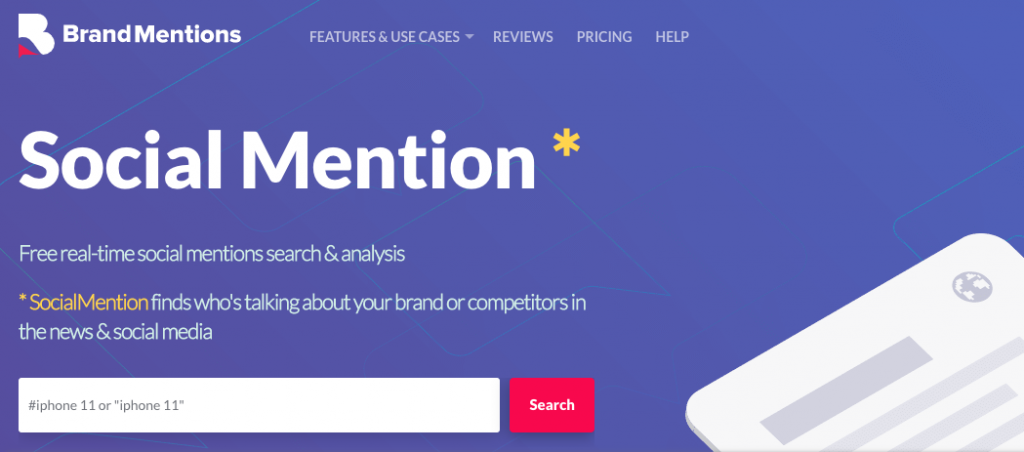
Social Mention monitors over 80 social media sites, including Facebook, Twitter/X, and YouTube.
The results display strength, sentiments, passion, and reach. The good news about this tool is that it’s free, fast, easy and based in real-time.
Cost: FREE

SentiOne has unique features to not only access real-time data, but to give you access to historical data too. It enables you to see what people have said about your brand in the past.
They offer the following services: the tracking of your brand’s mentions, social profiles or other keywords. Plus, you can filter the results into positive or negative mentions to help you act quickly to avert a crisis when necessary.
“SentiOne provided an all-in-one online contact centre with integrated social channels and messaging apps to help AirHelp reduce response time on Facebook Messenger by up to 65%”
Cost: Team Plans from $299/month
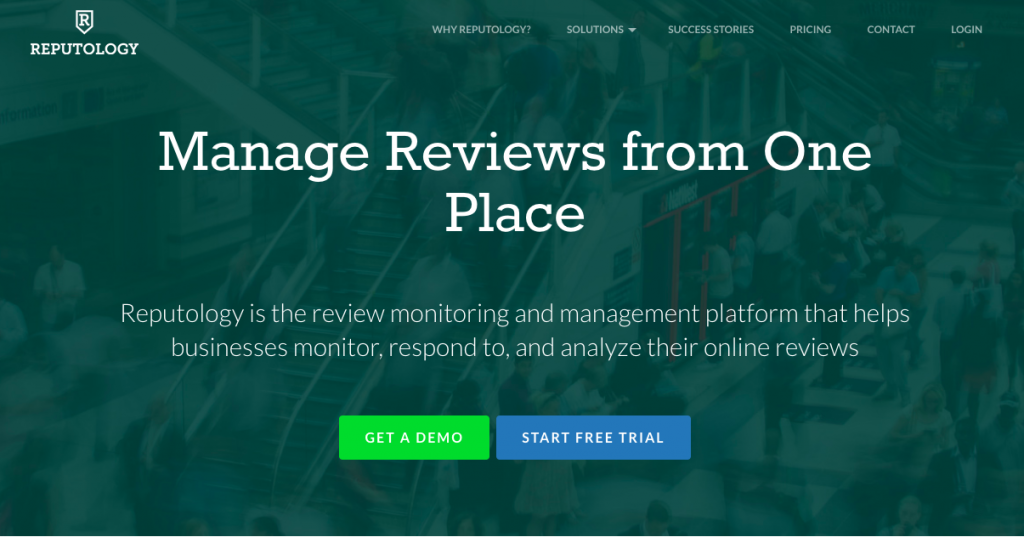
Reputology is a review management and monitoring platform designed to help multi-location businesses improve. They convert negative reviews into customer service tickets.
Secondly, they can also ‘listen’ to what customers say about your site from industry-specific review sites.
It is designed for businesses in the hospitality, dining, healthcare, fitness and real estate niches. Check them out if your business falls into one of these categories.
” 90% of consumers look at online reviews before making a purchasing decision, so negative reviews are very likely to steer people away, especially if the negative reviews happened more recently than the positive ones”
They also encourage asking for reviews at point of sale. Read more about it here.
Cost: From $60, see below:
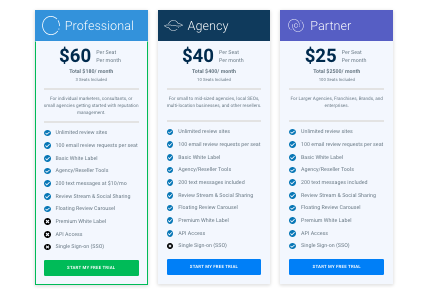
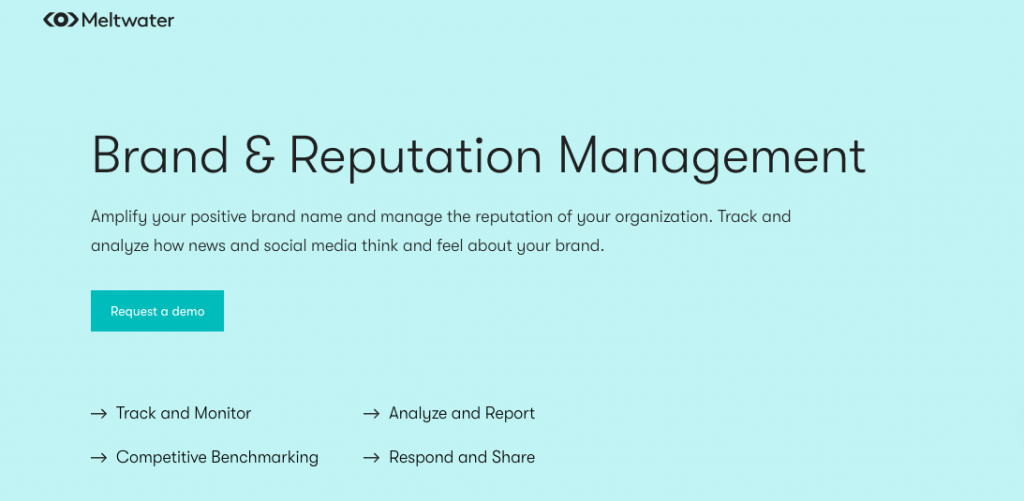
Meltwater goes beyond the press monitoring of other online reputation management software tools by including social media listening into the mix with real-time analytics.
They offer the largest global media database, plus they have the ability to track your competitor’s features and mentions.
You can directly transform the reports and analytics from the dashboard into presentations. As a result you can easily share this information with internal teams in your business.
They offer phenomenal guidance and support. It’s definitely considered one of the best tools on the market.
Cost: Not provided: contact them to request a quotation.
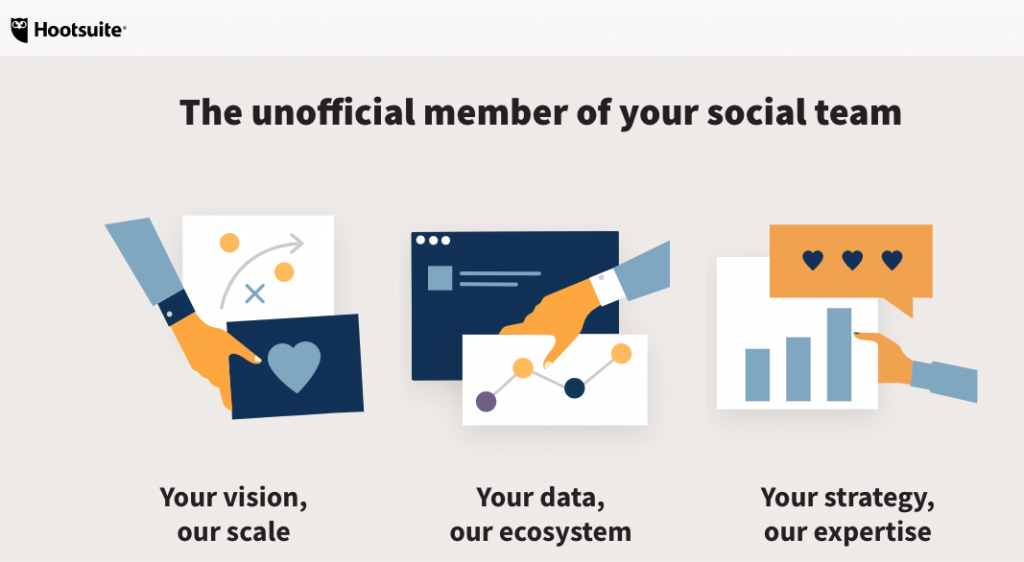
You can’t talk about online reputation management without mentioning Hootsuite.
Hootsuite is known for:
Cost: Free plans are available, or paid plans from $29 a month, see breakdown below:
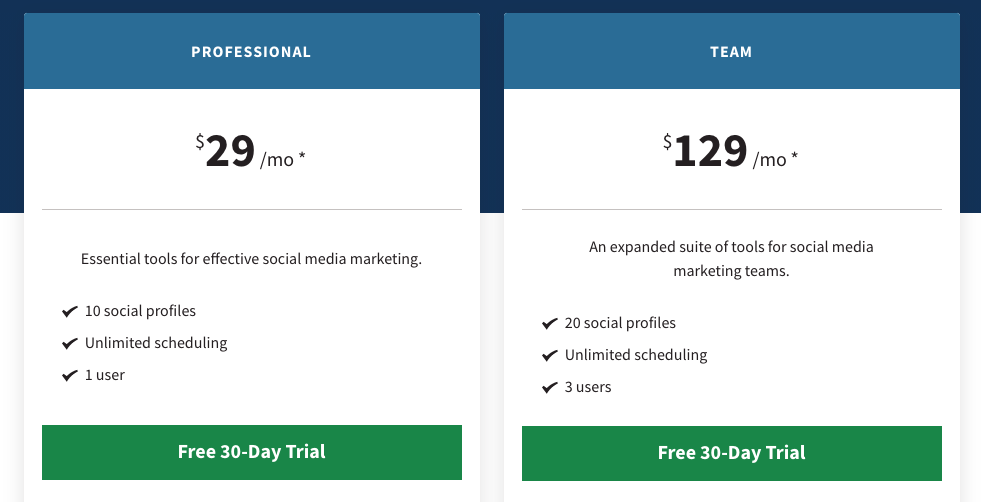
The task of managing your online reputation is no longer a nice-to-have. It is an essential part of running any business, especially with the rise of social media usage.
It might seem like a mountain of a task. However, it is really quite simple. So we trust that these guidelines and tools not only convinced you into action, but that it will also elevate and enhance your business strategy.
In conclusion, all of this is so you can enjoy greater online engagement, higher revenues and the pure joy of running a successful business.
It is the ongoing task to create, cultivate and maintain your business’ brand name and perception online. To read more about online reputation management check this guide.
You get a better search engine ranking, increase customer trust and credibility, higher revenues and a professional image. Learn about the impact reputation management will have on your business in this guide.
Step one is getting a tool or software to help you track, analyse and report on findings. Find out all the tools to do online reputation management in this guide.
This depends on your type of business. Check out our section : 6 Platforms and Services for Online Reputation Management in this guide to learn more.
Ed Kent Media: Why Reputation Management is Important
Neil Patel: Guide to Reputation Management
Brightlocal: Local Consumer Review Survey
Brand24: Uber Case Study